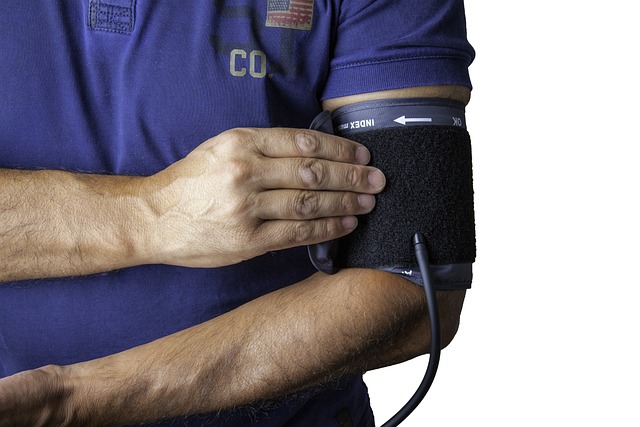Congestive Heart Failure: Common Causes and Early Symptoms
Congestive heart failure, a complex condition impacting heart efficiency, poses significant health challenges. Understanding its root causes, symptoms, and risk factors is crucial in managing the disease effectively. With a focus on comprehensive diagnostics, effective management strategies, and potential complications, this article explores CHF’s intricacies and the interprofessional care approaches enhancing patient outcomes.

What is congestive heart failure and how does it affect the body?
Congestive heart failure is a chronic condition where the heart’s ability to pump blood is compromised. This leads to a buildup of fluid in various parts of the body, particularly the lungs, legs, and feet. As a result, organs and tissues may not receive adequate oxygen and nutrients, causing a range of symptoms and complications. CHF can affect either the left side, right side, or both sides of the heart, each presenting unique challenges to overall health and well-being.
What are the primary causes and risk factors for CHF?
Several factors can contribute to the development of congestive heart failure:
-
Coronary artery disease: Narrowed or blocked arteries that supply blood to the heart muscle.
-
High blood pressure: Prolonged hypertension can weaken the heart over time.
-
Previous heart attack: Damage to heart muscle from a past cardiac event.
-
Valvular heart disease: Malfunctioning heart valves that disrupt blood flow.
-
Cardiomyopathy: Diseases of the heart muscle that affect its structure and function.
Risk factors include age (65 and older), obesity, diabetes, smoking, excessive alcohol consumption, and a sedentary lifestyle. Genetic predisposition and certain medications can also increase the likelihood of developing CHF.
How can you recognize the early symptoms of congestive heart failure?
Identifying early symptoms of CHF is crucial for timely intervention. Common signs include:
-
Shortness of breath, especially during physical activity or when lying down
-
Persistent coughing or wheezing
-
Swelling in the legs, ankles, and feet (edema)
-
Fatigue and weakness
-
Rapid or irregular heartbeat
-
Reduced ability to exercise
-
Sudden weight gain from fluid retention
-
Lack of appetite and nausea
It’s important to note that symptoms may vary depending on the type and severity of heart failure. Some individuals may experience mild symptoms that worsen gradually, while others may have sudden, severe onset of symptoms.
What diagnostic methods are used to confirm congestive heart failure?
Diagnosing CHF involves a combination of physical examinations, medical history review, and various tests:
-
Blood tests: To check for biomarkers like BNP (B-type natriuretic peptide)
-
Chest X-ray: To examine heart size and detect fluid in the lungs
-
Electrocardiogram (ECG): To assess heart rhythm and electrical activity
-
Echocardiogram: To evaluate heart structure and function
-
Stress tests: To determine how the heart responds to exertion
-
Cardiac MRI: For detailed imaging of the heart’s structure and function
-
Coronary angiogram: To visualize blockages in the coronary arteries
These comprehensive diagnostic methods help healthcare providers determine the presence, type, and severity of heart failure, guiding treatment decisions and management strategies.
How is congestive heart failure managed and treated?
Management of CHF typically involves a multifaceted approach:
-
Medications: ACE inhibitors, beta-blockers, diuretics, and other drugs to improve heart function and reduce symptoms
-
Lifestyle changes: Adopting a heart-healthy diet, regular exercise, smoking cessation, and limiting alcohol intake
-
Fluid and sodium restriction: To reduce fluid buildup and strain on the heart
-
Monitoring: Regular check-ups and self-monitoring of weight, blood pressure, and symptoms
-
Cardiac rehabilitation: Supervised exercise programs and education to improve heart health
-
Device therapies: Implantable cardioverter-defibrillators (ICDs) or cardiac resynchronization therapy (CRT) devices for severe cases
-
Surgery: In some cases, procedures like coronary bypass, heart valve repair, or heart transplantation may be necessary
Why is early detection and ongoing management of CHF crucial?
Early detection and proper management of congestive heart failure are vital for several reasons:
-
Improved quality of life: Early intervention can significantly reduce symptoms and improve daily functioning.
-
Slowed disease progression: Proper treatment can slow the advancement of heart failure and prevent complications.
-
Reduced hospitalizations: Effective management can decrease the frequency of hospital admissions.
-
Better long-term outcomes: Early detection allows for timely implementation of treatment strategies, potentially improving long-term prognosis.
-
Increased life expectancy: Appropriate management can extend life expectancy for those with CHF.
Understanding congestive heart failure, its causes, and early symptoms is crucial for anyone concerned about heart health. By recognizing the signs and seeking prompt medical attention, individuals can take proactive steps towards managing this condition effectively. Regular check-ups, adherence to treatment plans, and lifestyle modifications play key roles in living well with CHF. As research continues to advance, new treatment options and management strategies offer hope for improved outcomes and quality of life for those affected by this challenging condition.
This article is for informational purposes only and should not be considered medical advice. Please consult a qualified healthcare professional for personalized guidance and treatment.




